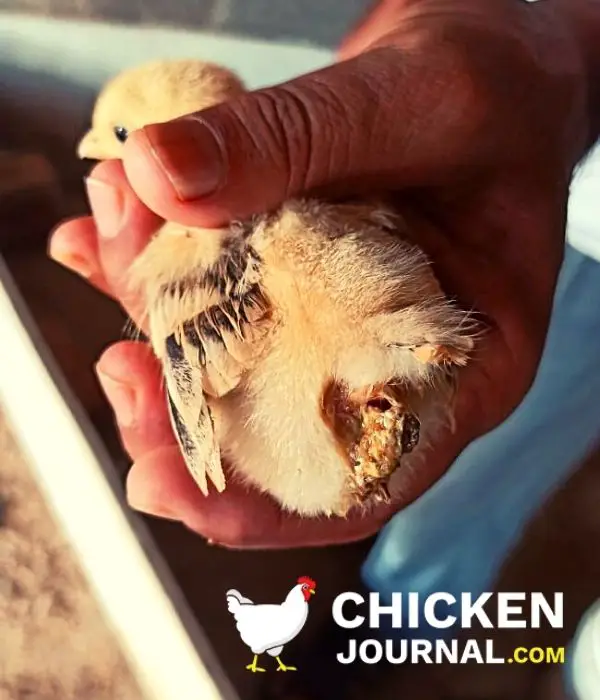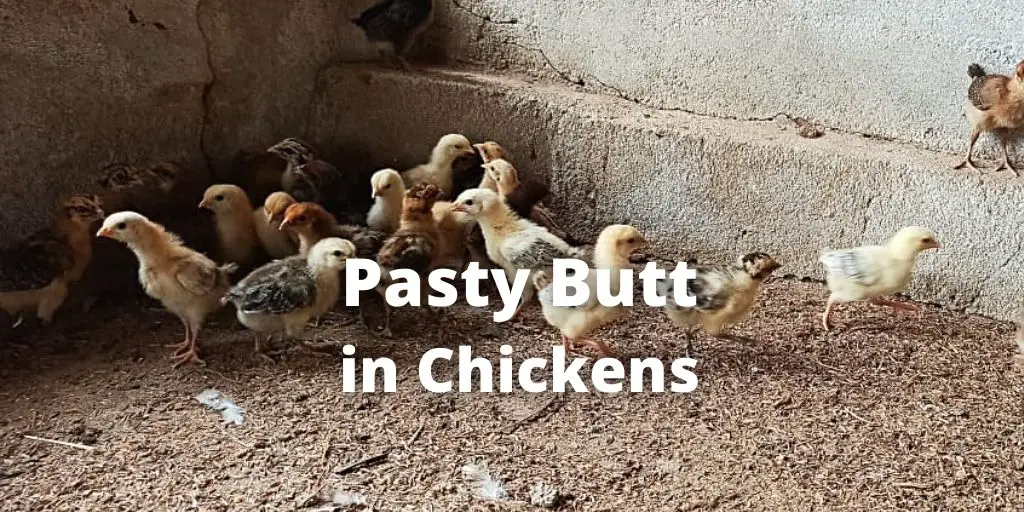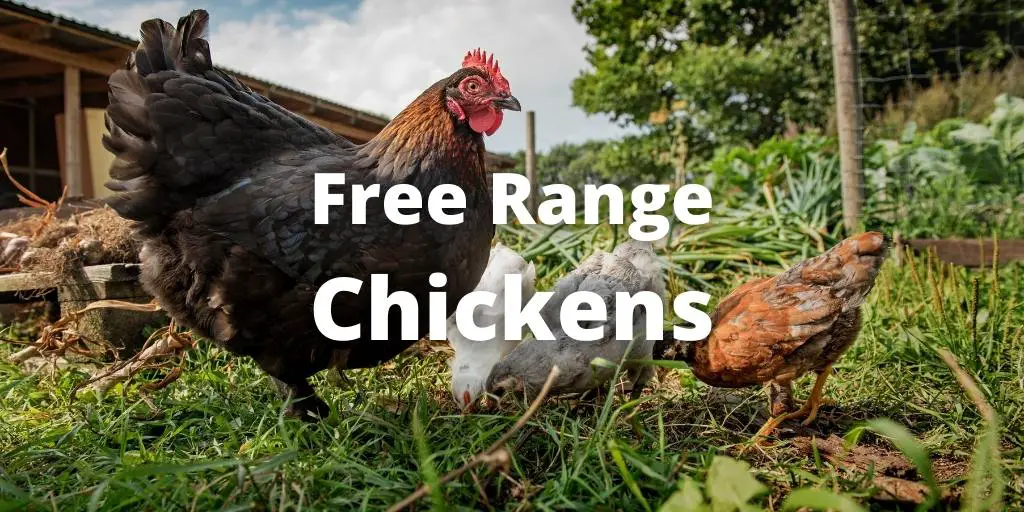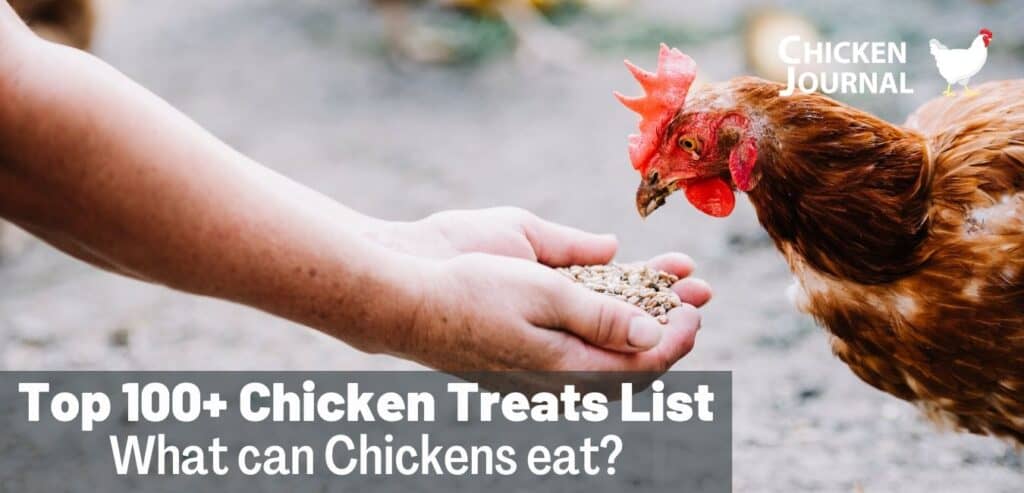Do you want to know all about pasty butt in chickens? This is a common health issue in most baby clicks.
Sometimes it can be fatal for baby chicks, so knowing its causes, treatment, and prevention is important. We know that prevention is better than cure, so if we figure out what’s causing this issue, we can solve it in a few days.
If you want to get rid of pasty butt in baby chickens, this guide will keep your chickens healthy.
What is Pasty Butt in Chickens?
Pasty butt is a health problem commonly seen in baby chicks. In this condition, the soft poop of the baby chicks sticks on the vent area.
The stuck poop becomes hard and closes the vent of the chicks. This issue needs immediate treatment. Otherwise, your chicks may die.
Pasty butt is known in different terms like –
- Sticky poop in chicks.
- Paste up.
- Pasted butt.
- Pasted vent.
If you hear any of the above names, they all mean pasty butt in baby chicks.
How do you know if you have a pasty butt? Know about common symptoms
It’s important to diagnose pasty butt in time because if you don’t treat it, it may cause early chick’s mortality. So, you need to know all about its symptoms.
Here are some symptoms that will help you figure out this problem and start the treatment:
- Sticky liquid poop.
- Hard stuck dropping on the vent area.
- The wet butt of chicks.
- A white and fungal type infection on the chick’s butt.
The above are the common physical symptoms to see and understand if your chicks are affected with a pasty butt.

What causes pasty butt in chickens?
The pasty butt problem is caused by a few common issues, which you will read below. This issue is seen mostly in 1 to 2 week old chick.
Adult hens and roosters are not usually seen with pasty butt problem, but if they have serious health issues, you may see it.
Excessive Cold
Pasting may be caused by excessive cold temperatures. Freezing colds cause indigestion and diarrhea in newly hatched chicks.
The primary cause of this pasty butt in cold areas is a lack of proper brooding. Keeping the chicken coop warm in cold weather is crucial for chicken survival.
Use some suitable quality heat lamps and poultry heaters so that your chicks live comfortably and healthily.
Excessive Heat
The most common cause of pasty butt in baby chick is overheating. If you are feeding baby chicks correctly, you need to keep an eye on their brooder with temperature control.
If the temperature is not controlled properly, the brooder guard may get too hot, which may cause pasting in chicks vents.
Read our guide on best heat lamps, where we have also provided the correct temperature chart for brooding baby chicks.
Sometimes excessive heat is caused because of hot climate areas. This overheating causes diarrhea and sticky poop, which leads to pasty butt.
In this condition, use good vitamins and electrolytes to help your baby chicks recover from the ongoing stress.
Bad Quality Feed
Feeding good quality poultry feed is most important in backyard farming. Proper feeding techniques have a crucial role in providing good gut health for chickens.
Baby chicks need pre-starter in the early weeks, but few new raisers give finish feed. This may be why chicks have indigestion, which may lead to pasty butt in its chronic phase.
This causes diarrhea and various intestinal issues, which is the primary cause of pasty vent. So, always provide a good quality poultry feed to your little ones.
Don’t be confused between the chicken treats and daily feed. Feed is given daily, and treats are occasionally.
Dehydrated Chicks
The majority of the chicken raisers buy from far hatcheries. We always order clicks from big hatcheries, but they are about 200 miles away from our poultry farm.
The reason behind ordering from so far is only good quality chicks and pure breed.
Giving too many vitamins and electrolytes to dehydrated chicks can make their butts stick to their feathers.
Always give your dehydrated chicks clean cold water for a few hours, and then give them electrolytes. If the room temperature is normal, do not switch on the brooder for a few hours.
Parasite infestation
In certain conditions, you may see pasting in chickens because of parasitic infections. A worm infestation in chickens reduces intestinal nutrients absorption, which leads to sticky droppings.
Pasting because of worm infestation is mainly seen in adult chickens. So, keep your poultry feed and litter clean, which avoids these types of health issues.
You can read our complete guide on chicken deworming to learn all about parasitic infestation in chickens.
How do I stop pasty butt in my chickens? Treatment of pasty vent in baby chicks?
We have provided steps to prevent pasty butt in the causes section, but if your chicks infested with it, you must follow some easy steps to get rid of it.
The pasty vent is treated with few easy steps:
- Clean the dried poop stick on the vent area with warm water.
- Please do not remove the dropping forcefully; give some warm water on it and wait when it becomes soft. Then remove it softly.
- Excessive stress for removing may cause rupture on the skin, so do it gently.
- Then clean the back of the affected chicks and dry using a towel.
- Use an air dryer for drying the chicks fast because chicks can’t bear wet skin and feathers for a long time.
- Then gently rub white petroleum jelly on the vent and back area to avoid further pasting.
- In the end, cross-check and find out the problem which was causing pasty butt in your chicks.
- Now your chicks are safe.
Summary
Pasty butt is a common concern for many chicken owners during brooding. You can save your chick’s life by knowing and treating this issue in time.
Don’t worry if you see pasty butt in your chicks. Just follow the easy treatment steps mentioned in this guide. Pasting goes away in a few days, but if not treated, you may lose your chicks.
Raising baby chicks is mostly about getting the right brooding and feeding methods. If you’re worried about your flocks, understand the prevention, symptoms, and treatments of pasty butt correctly.


